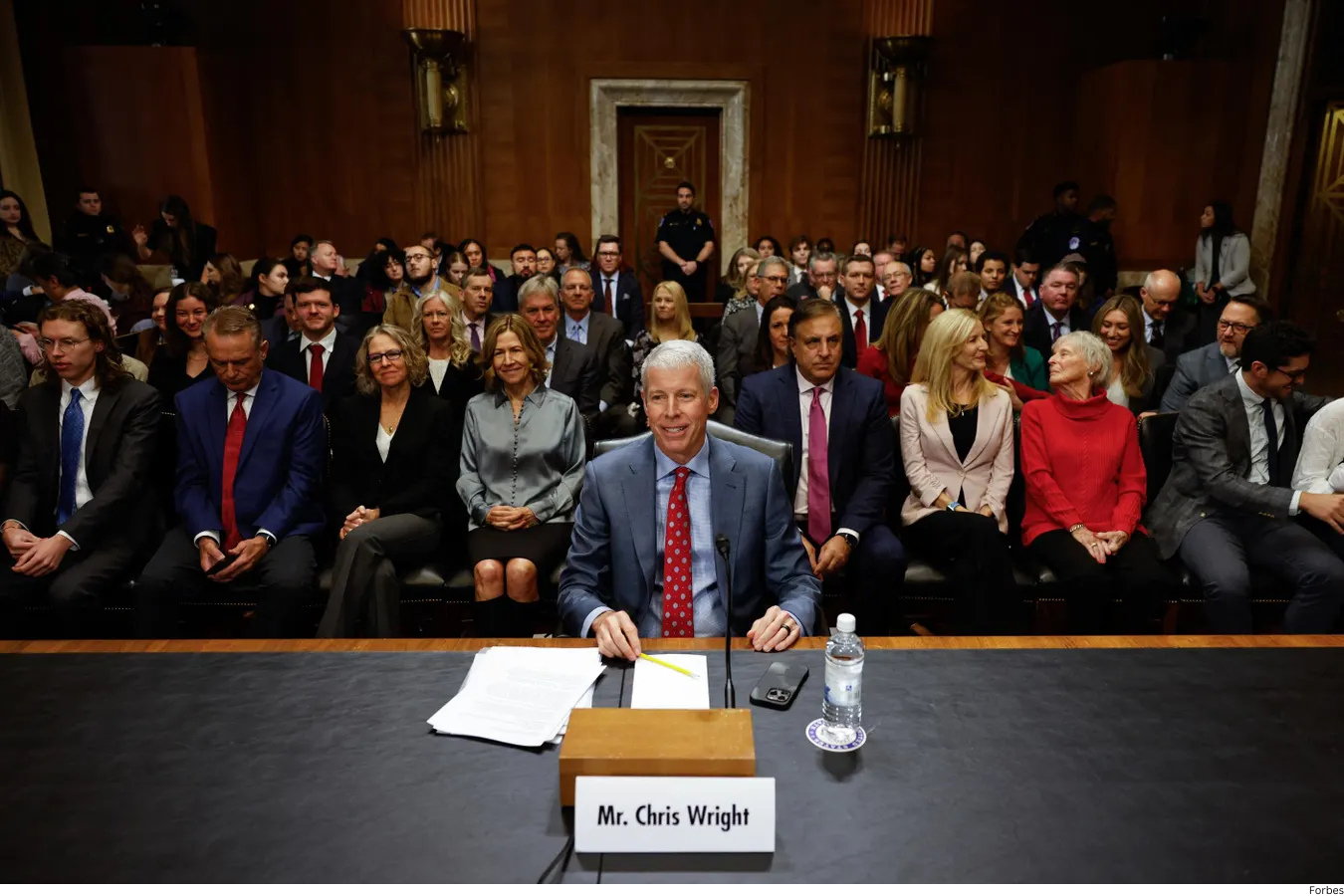Energy, specifically hydraulic fracturing, has shaped the professional and personal life of Chris Wright, allowing him to amass a fortune exceeding $100 million while downplaying climate change concerns along the way. Before entering the Trump administration as Secretary of Energy, Wright was the CEO of Liberty Energy, a publicly traded fracking services firm. His net worth positioned him among the wealthiest members of the Cabinet, alongside Howard Lutnick and Linda McMahon (both $3.3 billion), Scott Bessent ($600 million), and Doug Burgum (over $100 million).
Born in New Jersey and raised in Denver, Colorado, Wright pursued a rigorous academic path, studying mechanical and electrical engineering at the Massachusetts Institute of Technology and the University of California, Berkeley. In 1992, at just 27, he founded Pinnacle Technologies, a company specializing in hydraulic fracture mapping. Pinnacle’s technology, which could measure how fractures propagate underground, was developed just as the United States entered its fracking revolution, giving Wright an early advantage in the booming energy sector.
In 2000, while still serving as Pinnacle’s CEO, Wright became chairman of Stroud Energy, a shale-gas production company based in Fort Worth, Texas. Two pivotal deals marked his early success: Pinnacle was acquired by Carbo Ceramics in 2002 for an estimated $9 million in cash and stock, and Stroud Energy was purchased by Range Resources in 2006 for approximately $450 million. Wright’s stake in Stroud earned him tens of millions and prompted a well-earned sabbatical from the energy industry.
During his time away from the corporate world, Wright enjoyed family life and personal pursuits. He coached his children’s soccer, basketball, and little league teams, participated in competitive cycling, and constructed a home at the exclusive Yellowstone Club in Big Sky, Montana. The private ski resort, frequented by celebrities such as Mark Zuckerberg, Tom Brady, and reportedly Taylor Swift, provided him both privacy and luxury while he temporarily stepped back from the oil-and-gas business.
Despite the break, Wright was drawn back into the energy sector. In 2010, he founded Liberty Resources, relocating from San Francisco to Denver and focusing initially on developing land in the Bakken oil fields of North Dakota. When available fracking services failed to meet his standards, he co-founded Liberty Oilfield Services, a firm designed to provide hydraulic fracturing directly.
The industry faced challenges between 2014 and 2016, prompting Wright to pivot from Liberty Resources to Liberty Oilfield Services to preserve jobs and maintain company culture. “Ultimately, people and culture, to me, are the most exciting part of any business,” Wright said. “I’d never laid off anyone in my life, and I wanted to keep that record alive.”
Wright’s strategic shift proved successful. Liberty went public in 2018, weathering an industry downturn and the economic impact of the COVID-19 pandemic. The company later acquired Schlumberger’s OneStim business, which provided pressure pumping services in the U.S. and Canada, as well as PropX, expanding its ability to deliver and handle proppant—a key material that keeps fractures in rock open after hydraulic fracturing fluid is removed. By 2025, Liberty consistently generated over $4 billion in annual revenue, four times its 2020 earnings.
Analysts praised Wright’s leadership. Waqar Syed of ATB Capital Markets said, “He’s not only extremely smart, he’s also a very good business leader. He knows how to convert these great ideas into business ideas and to make money for himself and shareholders.”
At the time Wright entered the Cabinet, he held a 1.6% stake in Liberty Energy valued at roughly $50 million. Ethics rules required him to divest his shares shortly after taking office—a move that coincided with a 40% drop in Liberty’s stock following his resignation, fortuitously preserving his wealth. Wright also sold shares in Chevron and Expand Energy, netting approximately $6 million. Today, his remaining smaller oil-and-gas investments are valued at under $1 million each.
Wright’s most valuable physical asset is his Yellowstone Club mansion, spanning 9,500 square feet on six acres, estimated at $38 million before debt. He also owns several properties in the Denver area, collectively valued at $4.5 million, along with additional real estate holdings across the U.S. and Mexico. His portfolio includes stakes in BioFire, a private smart gun manufacturer, and Wayfare Tavern, a San Francisco restaurant.
Wright met President Donald Trump in April 2024 during a dinner with energy leaders at Mar-a-Lago. “I’ve met politicians before—they want a tagline and a photo. But he wanted to dialogue about energy,” Wright told Forbes. Encouraged by the substantive discussion, Wright accepted the role of Energy Secretary.
Critics often label Wright a “climate denier,” though he prefers the term “climate realist.” He has emphasized increasing energy production to lower costs for consumers, telling Fox News, “More energy is better than less energy. More affordable energy is better than more expensive energy. It’s just common sense.” His tenure reflects a consistent focus on supporting the very industry that created his wealth while shaping U.S. energy policy.
Chris Wright’s journey—from engineering student to fracking entrepreneur to Energy Secretary—illustrates the intersection of technical expertise, business strategy, and political influence in America’s modern energy sector. His story is a testament to how early innovation, bold business decisions, and industry insight can translate into personal fortune and national influence.
%20(4).png)








